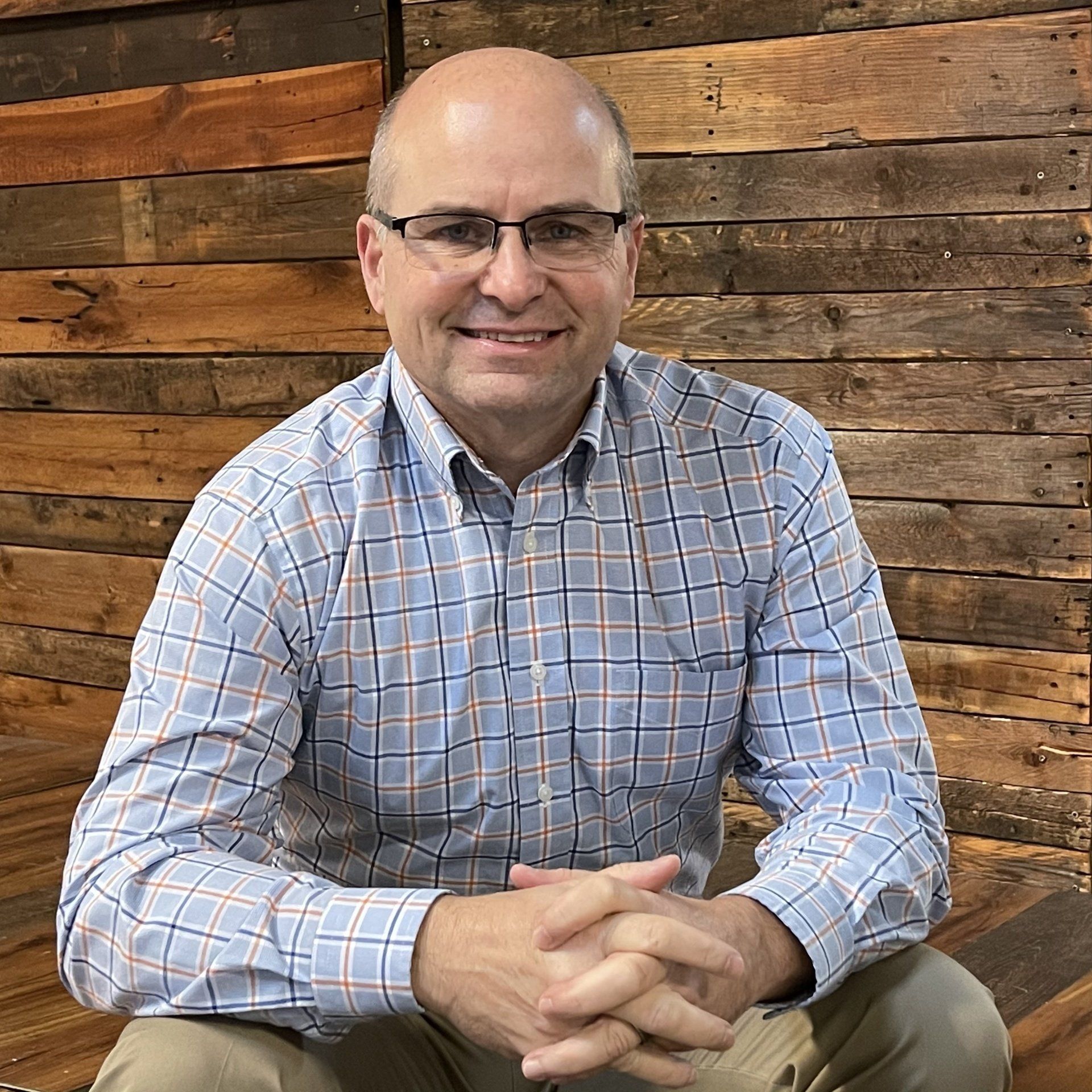Learn more about my book "The Courageous Ask"
Nonprofit Boards Have Issues: Recruiting and On-boarding
Have you ever noticed how organizations built on strong foundations are able to overcome nearly any obstacle and remain strong in adversity? That ability to focus on the foundation doesn't come natural to most boards and organizations in the face of an ever-changing and challenging landscape.
Foundations are so important. Foundations create the bedrock an organization is built upon.
Recruitment and on-boarding of new board members are two examples of that bedrock foundation.
They don’t always get that credit though, and are taken for granted.
When boards struggle to keep a consistent focus on those things that form the foundation of it, like recruiting and on-boarding, the organization begins to crumble as they work to hold it together. They then find themselves focusing on their own operations as a board, which takes their focus from other important matters in the organization.
This cycle is nearly impossible to stop once it has started.
(This blog focuses on starting a conversation centered on preventing the fall of nonprofit leaders. I write it from a Christian perspective, but all leaders will benefit. Be sure to sign up to receive these articles via email every Tuesday at
briankreeger.com as well as taking a look at previous blog articles. In addition to receiving these articles two days before they hit social media, you will receive the article "5 Early Indicators of a Christian Nonprofit Leadership Fall" along with the Contents, Introduction and the Appendix (My story) of my book,
The Courageous Ask: A Proactive Approach to Prevent the Fall of Christian Nonprofit Leaders.)
According to BoardSource, “Nothing is more important to the health and sustainability of your organization than getting highly qualified and enthusiastic people to serve on your board. But many organizations struggle to identify the right leaders.”1
Oh, how true that is. Keeping the board vibrant and fresh is one of the biggest challenges of a nonprofit organization. Some do it well, but most struggle.
BoardSource also reports that 58 percent of nonprofit leaders find it difficult to recruit new board members.
This difficulty can lead to staleness on the board, as board members stick around way beyond their prime. They can become a rubber stamp for the leadership who have become their friends. They also become advocates for the this is how we've always done it philosophy.
In some cases, because of difficulty in recruiting, the board may experience founder’s syndrome, as the founder wields a high level of power among the board members.
Both of these results of recruiting difficulty find boards unwilling to change and move into the future of their sector, leaving their organizations in the mediocrity dust of others doing it better.
Every leader wants great talent on their board that just happens to have a high level of experience and a vast network for raising funds.
I have served on boards that are very purposeful when considering potential new members they would like to recruit. And it shows. But I have also served on boards that find themselves trying to fill slots on the board at all costs. And it shows.
Sure, they have standards, but those standards fluctuate depending on the need. I have watched boards bend standards that were developed based on their core principles in the recruiting of new board members, principles that make them who they are. When standards are bent, we like to think that the potential board member doesn’t see it, but they do.
This can start a cycle in their personal board membership that bends standards and makes them a sloppy member of the team as standards and expectations come across as flexible.
This especially happens when organizational leaders want to build credibility for their organization. This causes them to desire to have big names on their board or to have certain categories of directors serving.
For instance, a Christian social service agency would want a pastor and members of the community they are serving on their board. That makes sense, but to what extent are they willing to bend to fill the categories as they build that credibility?
It’s hard not to be sympathetic
to the plight of leadership struggling to recruit the exact people they need on their board. I know I continually had a difficult time and bent the standards myself. And it showed.
To the top-notch board member or board chair, it can be very frustrating working to build a board of qualified members. As we’ve seen, it is a common problem. When the focus of the board and its leadership is taken away by tasks such as recruitment of board members, it is even more difficult for them to pay attention to the subtle cues of a leader falling. But board recruitment is a necessary evil.
Even if the board leadership finds itself with some decent new recruits, are they being on-boarded properly?
Green, Hasson & Janks is a Los Angeles-based accounting and tax consulting firm that takes nonprofits seriously as they work to provide value to that nonprofit community. In 2018 they published a whitepaper report that had some interesting statistics concerning onboarding of new board members. The survey revealed the following:
- 12% of respondents said new board members attend mandatory board training,
- 16% have a formal on-boarding process or are developing one,
- 35% of respondents said new members are provided with an information packet prior to their first meeting,
- 42% of board members fully understand their organization’s programs, and
- 58% of board chairs set clear expectations for board members.2
The numbers speak for themselves, and any veteran board member has to agree that they have experienced this very thing. Proper on-boarding of new board members seriously lacks and causes major lapses in focus as those new members are receiving their on-the-job training.
Improper recruitment and on-boarding
of potential and new board members causes most of the struggles on boards. These two things have to be done right, they are foundational to the organization. Without them being given the proper attention they need, the board will run circles around themselves and be unproductive.
This lack of productivity and frustration will cause the board to be preoccupied with its own operation, with the needs of the organization and support of its leadership becoming secondary.
In other words, the board will be paying attention to the wrong things.
The proper choosing and vetting
of potential board members, along with proper orientation of those board members, is vital. Without these two things at the genesis of board membership, a new board member can be left confused, frustrated, and to their own devices. This can cause commitment to vary and may cause motivation to be lost. With that, board mediocrity and organizational difficulty may be on the horizon.
And I have seen this happen on a food bank board I once served on. The organization almost imploded. It took nearly a complete turnover in operational leadership and board membership for the organization to survive. Today it is thriving.
Do you see these things occurring in your organization….on your board? It’s time to do something about it.
Be Courageous!
Be Proactive!
Be sure to sign up to receive these articles via email every Tuesday at
briankreeger.com. In addition to receiving these articles two days before they hit social media, you will receive the article "5 Early Indicators of a Christian Nonprofit Leadership Fall" along with the Contents, Introduction and the Appendix (My Story) of my book,
The Courageous Ask: A Proactive Approach to Prevent the Fall of Christian Nonprofit Leaders.
1”Board Recruitment,” BoardSource, 2013, https://boardsource.org/fundamental-topics-of-nonprofit-board-service/composition-recruitment/board-recruitment/.
2
Donella Wilson et al., “2018 Nonprofit Report | Board Governance: The Path to Nonprofit Success,” Green, Hasson & Janks Advisors (HLB International, 2018), https://www.ghjadvisors.com/local-uploads/pdfs/Green-Hasson-Janks-2018-Nonprofit-Report.pdf.
#LeadershipFall #LeadershipSurvival #NonprofitRelationships #ProactiveApproach #LeadershipStruggles #LeadershipBattles #ChristianExecutiveLeader #ChristianLeader #CourageousAsk #Proactive #ProactiveLeadership #NonprofitLeadership #ExecutiveLeadership #ChristianLeadershipFall #BoardIssues #BoardFocus #NonprofitBoardRecruiting #NonprofitBoardOn-Boarding






